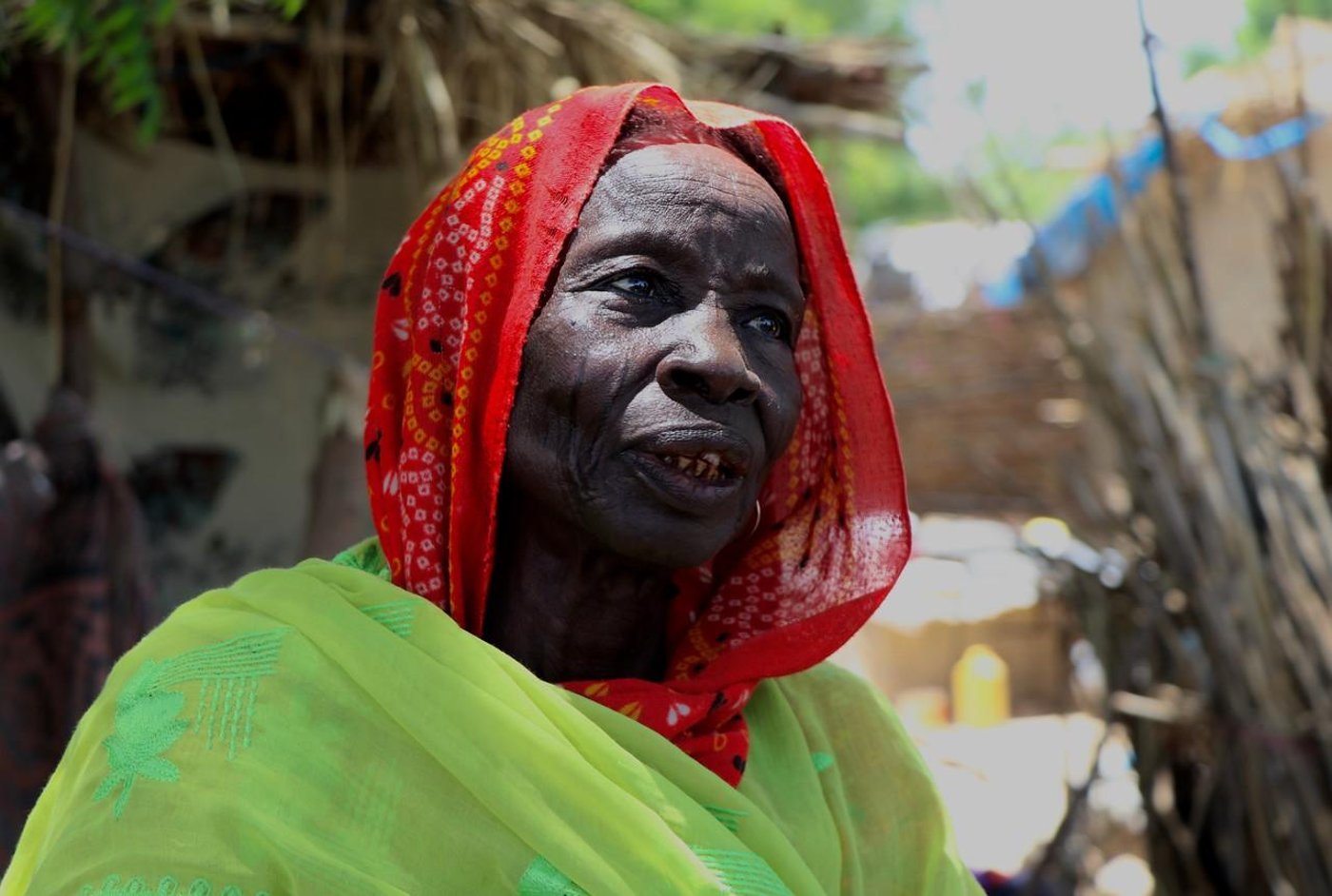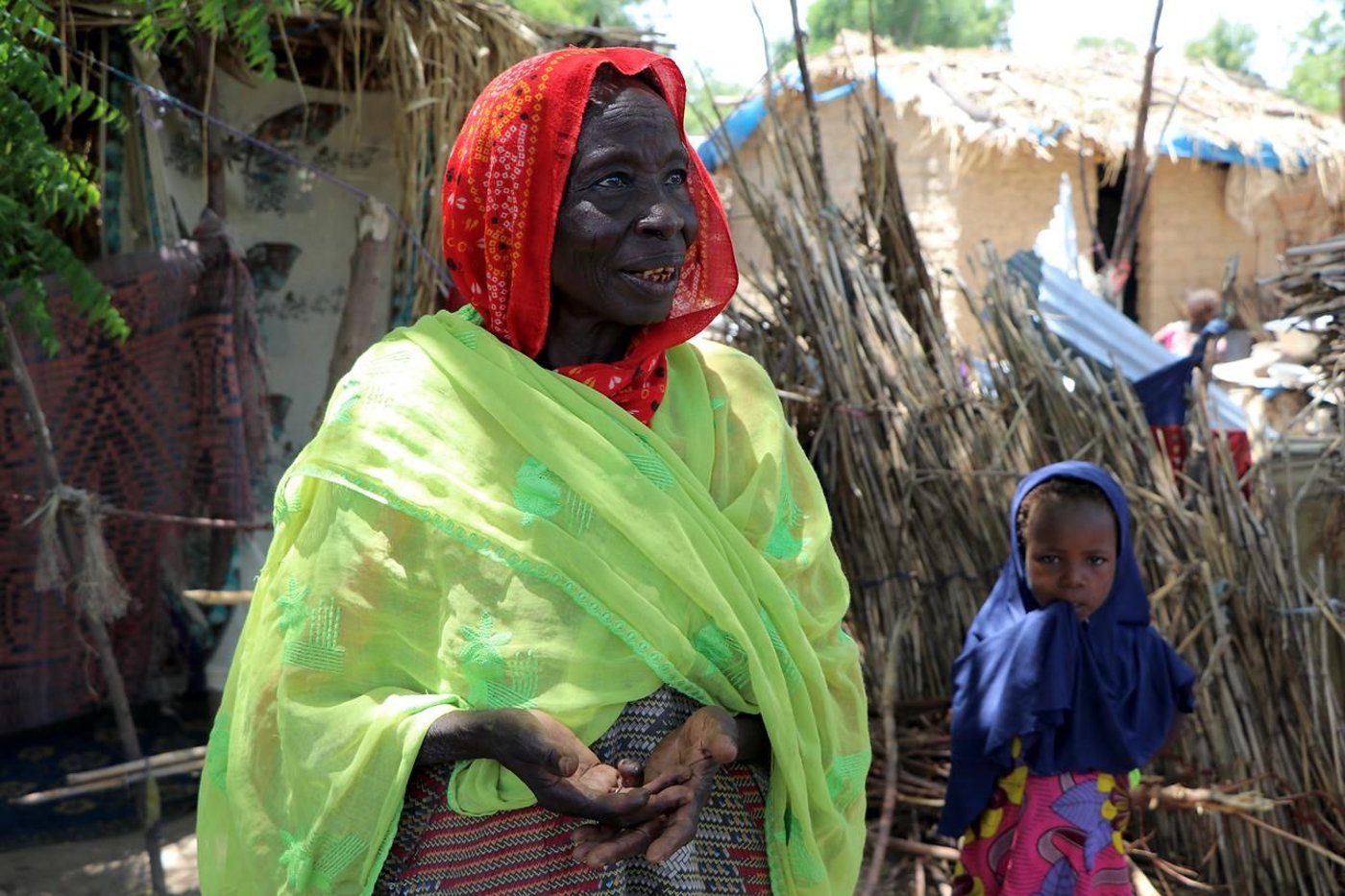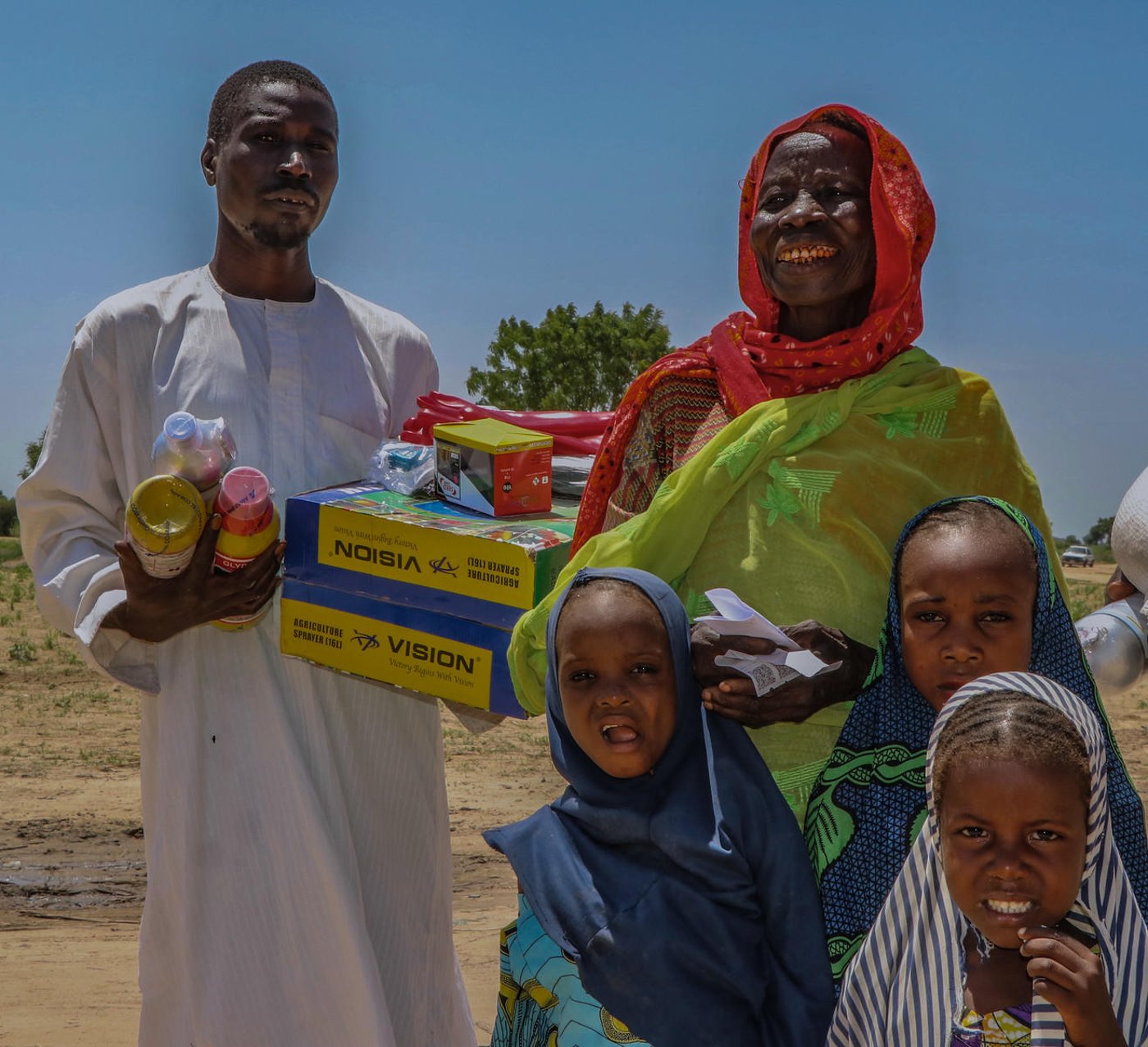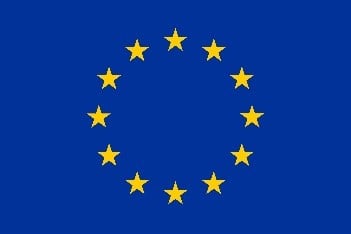She does not know her age but thinks she is in her 50s, maybe even over 60. Fatilama has been a farmer her whole life and used to own a plot of land in her home village in Borno State, north-east Nigeria.
Today, she lives in a new settlement close to a large town, and far away from the rural area where she once lived. Her village is no longer safe, her home set on fire by armed groups.
Forced to leave her land
It was three years ago that Fatilama was forced to flee with nothing but the clothes on her back, leaving behind her plot of land. Since then, she has been living in one of the makeshift tents that have mushroomed all over her new village, as more and more displaced families have sought refuge there.
Her last three years have not been easy. Fatilama has become the guardian of six children, all of them from her extended family. She is the head of the household and is the sole provider.
“I do it for the children,” she explains, when asked how she finds the strength to work so hard.

Farmers are being kidnapped
Fatilama now farms on other people’s land to grow the food her family needs. Around her, safe agricultural land is limited. Only few kilometres away from her tent, farmers like her have been kidnapped by armed groups, as they ventured away from the village to look for vacant farmland.
Despite the danger, Fatilama keeps farming. Like many families around her, working in the fields is her main means of subsistence. But even working as hard as she does, Fatilama struggles to make ends meet.
In the wake of the Covid-19 pandemic, the prices of most staple food commodities have increased. Often, Fatilama has no choice but to send her children to beg in town or collect wood to sell.

Sowing the seeds of hope
Today, Fatilama feels hopeful about the future of her family. As part of an EU-funded project, she has received seeds and farming equipment such as rubber boots, pesticides and tools from the Norwegian Refugee Council (NRC).
“All my work goes to buying food – there’s no money left after. You can tell by my hands; I work so hard. But I would have never been able to afford these seeds,” she says.
“Now I can start planting in a few weeks for my family.”
Depending on the yield, Fatilama hopes she can set aside food for her family and sell the rest of her produce.
“I want to buy clothes – not for me, but for the kids – and get more fresh food for them.”
As the rainy season sets in, she looks forward to beginning planting again.




 This initiative is funded by the European Union, through a project called EU Support to Response, Recovery and Resilience in Borno State. The objective is to build the resilience of conflict-affected people and public sector institutions in north-east Nigeria in an environmentally friendly way.
This initiative is funded by the European Union, through a project called EU Support to Response, Recovery and Resilience in Borno State. The objective is to build the resilience of conflict-affected people and public sector institutions in north-east Nigeria in an environmentally friendly way.